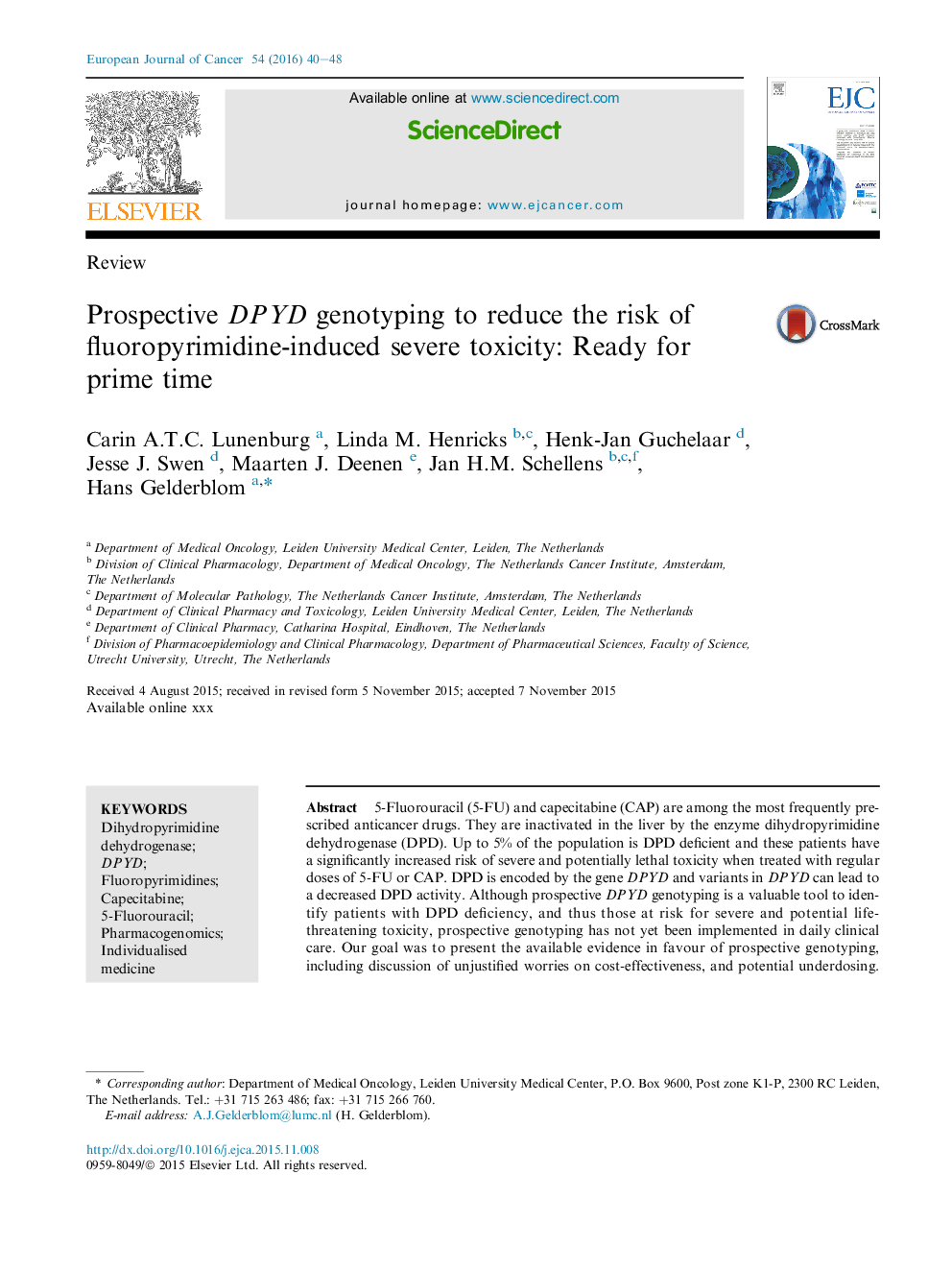| کد مقاله | کد نشریه | سال انتشار | مقاله انگلیسی | نسخه تمام متن |
|---|---|---|---|---|
| 8441527 | 1547085 | 2016 | 9 صفحه PDF | دانلود رایگان |
عنوان انگلیسی مقاله ISI
Prospective DPYD genotyping to reduce the risk of fluoropyrimidine-induced severe toxicity: Ready for prime time
دانلود مقاله + سفارش ترجمه
دانلود مقاله ISI انگلیسی
رایگان برای ایرانیان
کلمات کلیدی
موضوعات مرتبط
علوم زیستی و بیوفناوری
بیوشیمی، ژنتیک و زیست شناسی مولکولی
تحقیقات سرطان
پیش نمایش صفحه اول مقاله

چکیده انگلیسی
5-Fluorouracil (5-FU) and capecitabine (CAP) are among the most frequently prescribed anticancer drugs. They are inactivated in the liver by the enzyme dihydropyrimidine dehydrogenase (DPD). Up to 5% of the population is DPD deficient and these patients have a significantly increased risk of severe and potentially lethal toxicity when treated with regular doses of 5-FU or CAP. DPD is encoded by the gene DPYD and variants in DPYD can lead to a decreased DPD activity. Although prospective DPYD genotyping is a valuable tool to identify patients with DPD deficiency, and thus those at risk for severe and potential life-threatening toxicity, prospective genotyping has not yet been implemented in daily clinical care. Our goal was to present the available evidence in favour of prospective genotyping, including discussion of unjustified worries on cost-effectiveness, and potential underdosing. We conclude that there is convincing evidence to implement prospective DPYD genotyping with an upfront dose adjustment in DPD deficient patients. Immediate benefit in patient care can be expected through decreasing toxicity, while maintaining efficacy.
ناشر
Database: Elsevier - ScienceDirect (ساینس دایرکت)
Journal: European Journal of Cancer - Volume 54, February 2016, Pages 40-48
Journal: European Journal of Cancer - Volume 54, February 2016, Pages 40-48
نویسندگان
Carin A.T.C. Lunenburg, Linda M. Henricks, Henk-Jan Guchelaar, Jesse J. Swen, Maarten J. Deenen, Jan H.M. Schellens, Hans Gelderblom,